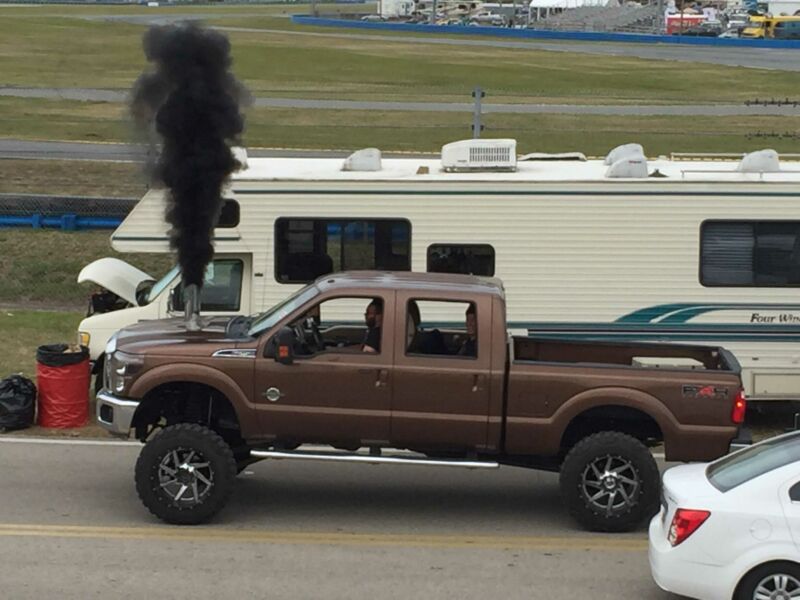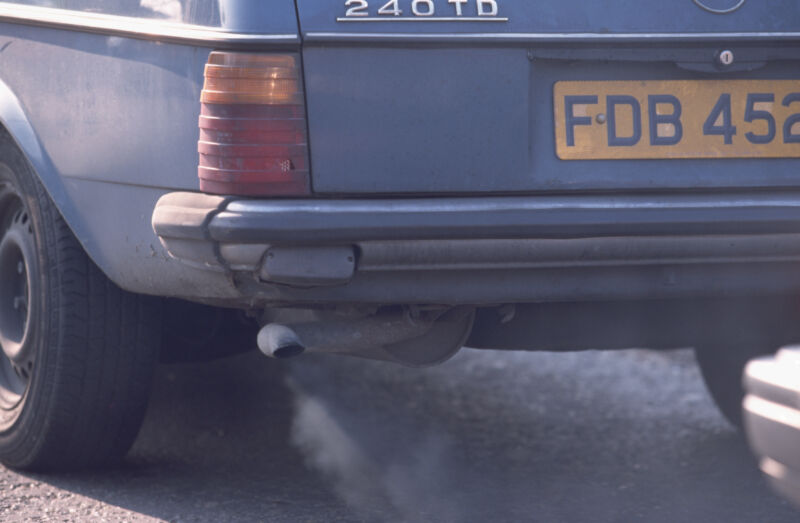-
 chevron_right
chevron_right
Truck emissions mods pollute more than dieselgate, EPA says
Jonathan M. Gitlin · news.movim.eu / ArsTechnica · Tuesday, 1 December, 2020 - 16:06 · 1 minute

Enlarge / A thoughtful soul decides to poison the air as he drives through the infield at Daytona International Raceway during the 2016 Rolex 24 race. (credit: Jonathan Gitlin)
I remember the first time someone rolled coal on me. It was 2006, and I was driving to work at the University of Kentucky. It was a bright, sunny day in Lexington, and I had the roof down and was stopped in traffic behind a large pickup truck with decidedly non-standard exhaust pipes exiting straight up behind the cab. Whoever was driving the pickup evidently noticed the Miata in his mirror and enveloped me in a thick cloud of soot when the lights changed.
As automotive subcultures go, intentionally modifying your truck's diesel engine to make extra pollution is one of the more antisocial ones out there. According to the US Environmental Protection Agency, diesel trucks with disabled emissions controls are far more widespread than you might think and emit more pollution than the diesel engines that got Volkswagen such hefty fines.
In 2016, Volkswagen agreed to a pair of court settlements totaling nearly $16 billion after it was caught selling diesel vehicles fitted emissions defeat devices. In total, the VW scandal affected more than half a million cars and SUVs sold in the US, which produced up to 40 times the legal limit of nitrogen oxides (NO x ) when in daily operation.

